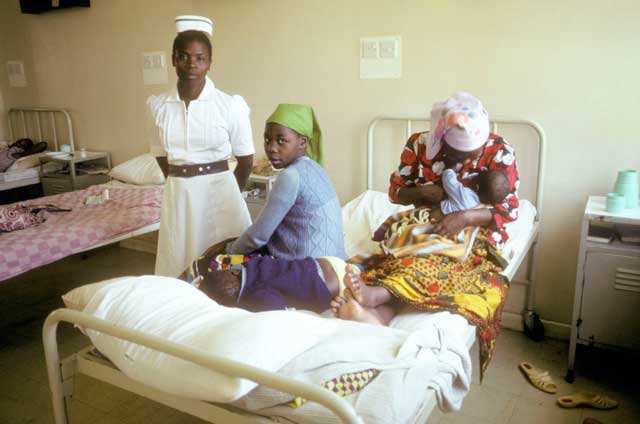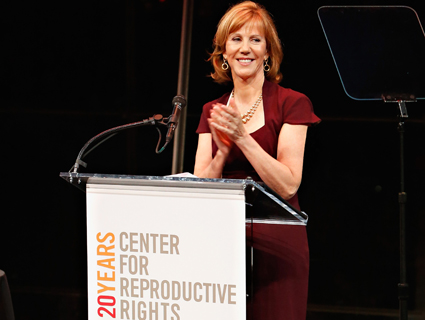After Tiller
Oscilloscope
One can understand the decision of the expectant mother after she learns that even if her baby were to survive delivery, his life would be short and marred by seizures and suffering. One can sympathize with the god-fearing couple whose unborn child is revealed to have terrible deformities and little hope for any real quality of life. And it’s not difficult to comprehend the choice of the young woman who became pregnant after being raped. But then there are the women who just waited—in denial, out of fear, or for some other private reason. No matter the case, the decision to undergo a late-term abortion is a complex moral dilemma for patients and doctors alike.
After the 2009 murder of Dr. George Tiller in a Wichita, Kansas church, only four doctors continued to provide third trimester abortions openly in the United States. After Tiller, a politically charged yet tender portrait by filmmakers Martha Shane and Lana Wilson, tells us the stories of these doctors (LeRoy Carhart, Warren Hern, Susan Robinson, and Shelley Sella), who perform their duties under the very real threat of assassination.
The process of third-trimester abortion is especially wrenching. The practitioners must euthanize the fetus in utero by injecting a drug into its heart, and then induce labor so the woman can deliver a stillborn child. Some families hold funerals, saying hello and goodbye to their baby in the same devastating moment. In the film, one couple takes home tiny hand and foot prints.
Many Americans consider third-trimester abortion homicide; in a December 2012 Gallup poll, only 14 percent of respondents said it should be legal. This past June, in fact, the House of Representatives passed legislation that would outlaw abortions after 20 weeks, except in cases of rape, incest, and where the health of the woman is endangered. The Senate won’t even consider the legislation, and the White House has indicated it would veto such a bill. Still, 11 states have enacted similar abortion bans; Arizona even narrowed the window to 18 weeks, although the courts have blocked it and two other states from enforcing these laws, according to the Guttmacher Institute.
After Tiller demonstrates that these doctors—protégés, peers, and friends of the murdered abortion provider—understand better than anyone that their profession skirts a morally ambiguous line. At the same time, it succeeds at showing why their work is desperately, vitally important.
In medical school, Warren Hern started out as an obstetrician because he loved delivering babies, calling it a joyful and miraculous experience. Then he did a stint in the Peace Corps in an impoverished part of Brazil, working with post-natal women and also women recovering from illegal abortions—nearly half of whom died, he told the filmmakers. He also saw the horrible abuse of children born to parents who didn’t want them or who were unprepared to care for them. “I’ve looked at this from the beginning as a public health issue,” he says.
The film portrays LeRoy Carhart as being most in the crosshairs of anti-abortion protesters who alternately plead and pray or heckle and harass his clinic’s patients and staff. In February, shortly after the film debuted at Sundance, one of his patients died from complications related to an abortion procedure. Although the police filed no charges after investigating the case, the woman’s death sparked fresh outrage among anti-abortion groups. Carhart is now on the short list of abortion doctors targeted by Operation Rescue, whose senior policy advisor, Cheryl Sullenger, served prison time for plotting to blow up an abortion clinic in the 1980s. While the group doesn’t openly advocate for violence against abortion providers or patients, Sullenger’s phone number was found in possession of Scott Roeder, the man who murdered Tiller.
Although it is a woman’s choice whether to have an abortion, a doctor ultimately must agree to do the procedure. Here’s how Susan Robinson, one of the doctors profiled, justifies her decision to heed her patients’ wishes:
What I believe is women are able to struggle with complex ethical issues and arrive at the right decision for themselves and their families. They are the world’s expert on their own lives. So if somebody comes in and says, “I want an abortion,” whether or not she is articulate about it, let alone she has a great story to tell, isn’t the point. The point is that she has made this decision…For me, if I’m going to turn down a patient it should be because I think it’s not safe to take care of her. I think that is really the only reason that it’s fair to turn a patient down.
After Tiller opens in theaters in New York City on September 20. Check here for other screenings.
Also read: Meet Chicken & Egg Pictures, the driving force behind women-produced films like After Tiller.

















